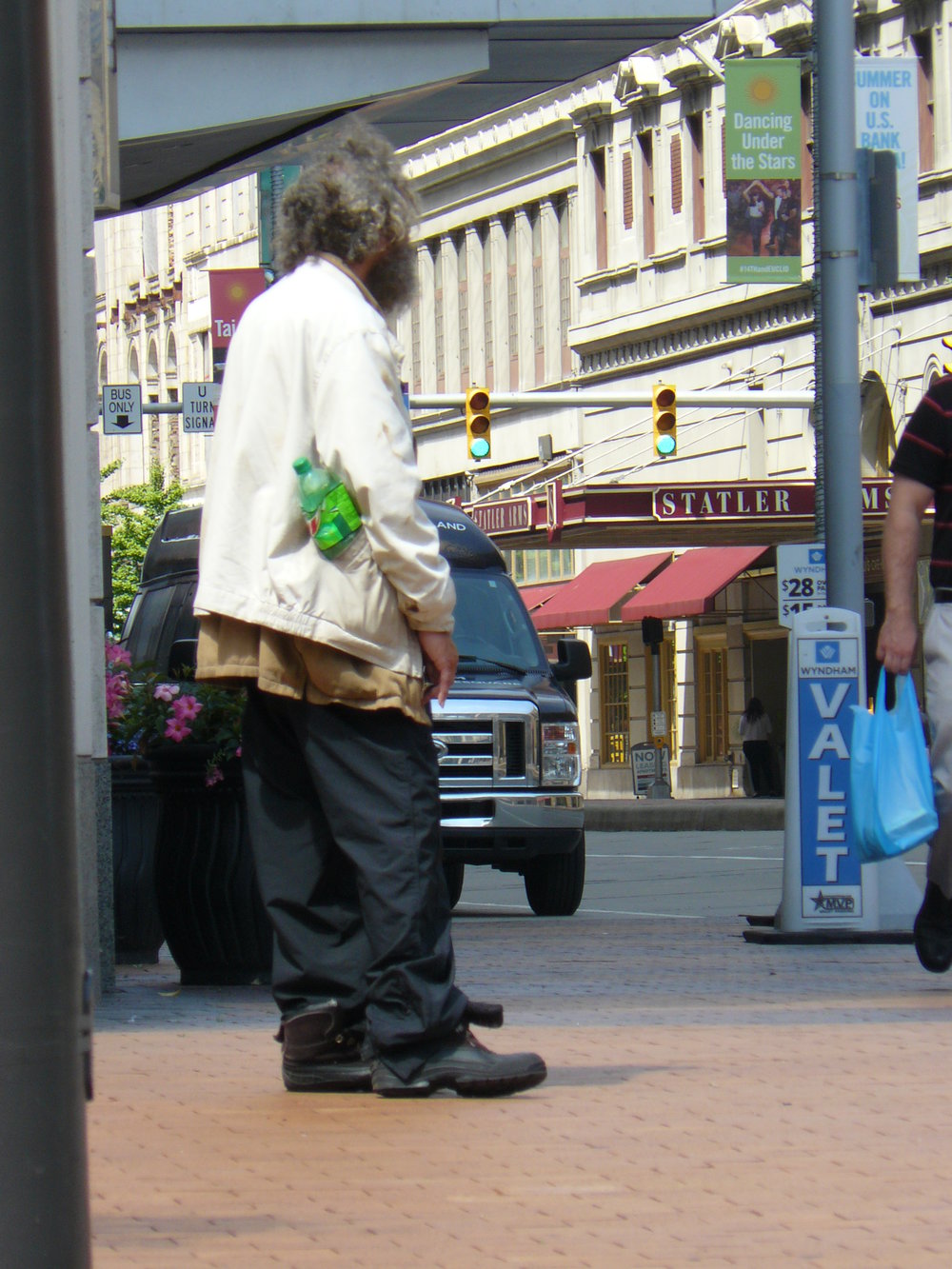Panhandling Laws Changing But How About Outreach?
Columbus is the most recent big city in Ohio to announce that they are not enforcing their "aggressive solicitation" panhandling law. This follows a US Supreme Court decision that struck down limitations on free speech such as asking for money. Then the cities began following the Supreme Court decision with Youngstown, Akron, Cleveland, Dayton and Toledo being forced to withdraw their panhandling laws. Free Speech champion and panhandling law slayer, Joe Mead of Cleveland State University is the man behind the elimination of these laws. He typically sends a letter under the letterhead of the American Civil Liberties Union calling attention to the Supreme Court decision and asks the City to stop enforcing these anti free speech laws.
Most cities ignore him and then he has to file suit on behalf of those struggling in the city. John Mancini in Cleveland was tired of being harassed by the police on East 9th or West 4th or anywhere around the Public Square and he joined Prof. Mead to file suit against the City of Cleveland enforcement of a panhandling law. NEOCH had become aware of problems at the end of last year when the number of homeless people receiving panhandling tickets had seemed to increase and we were stuck working to find some of our clients when their number came up for housing. It turned out they were in jail for not paying outstanding panhandling fines. We had requested under the Ohio Open Records Act a copy of the number of panhandling tickets. We found 1,517 panhandling tickets were issued from January 1, 2015 to December 31, 2017. Here is the memo from the City of Cleveland in response to our request:
Here is the information from the City of Cleveland provided in March 2017:
ORC 605.031* and 471.06* Cases From 1/1/2015 - 12/31/2016
Offense Code Total Count
471.06 106
471.061 19
471.06A 53
471.06B 768
471.06C 1
471.06D 7
471.06E 7
471.06F 17
605.031 12
605.031B1-M1 38
605.031B1-M3 5
605.031B1-M4 61
605.031B2-10-M4 94
605.031B2-10-MM 77
605.031B3 4
605.031B6 9
605.031B9 M4 137
605.031B9 MM 102
Total Case Count: 1,517
It is for this reason that NEOCH joined the ACLU lawsuit against the City of Cleveland. We also referred a number of our constituents to the ACLU who all were being regularly harassed with anti-free speech tickets. While most of the panhandlers do not meet the Department of Housing and Urban Development definition of homelessness, they are all certainly poor and struggling. They carry signs declaring that they are struggling and need help. The ultimate self-proclaimed Scarlet P for "poverty," and for some reason the cities object to people announcing that they are struggling with stability and need help. But were these laws effective? In June, the City of Cleveland withdrew the panhandling laws and passed a new law that restricts access to people flagging down cars. This was a great going away gift for my tenure at NEOCH having spoke out against these laws in 2005 when they were first passed in Cleveland. Thank you City officials for coming to your senses after a dozen years.
Only Cincinnati is left among the big Ohio cities that still enforce the panhandling law, and they have a rough one. If you want to beg for money in the Queen city, you must get a license from the City and wear the license around your neck like a dog. They have created a new profession of begging for money in the same class of jobs as hair stylist, tow motor operator, real estate agent and insurance broker--all of which need a license. Akron had the same law with one additional anti-free speech provision and anti-common sense component that a panhandler could not beg for money outside a church? Thus attacking two pieces of the first amendment in the same ordinance. Did panhandling decrease in any of these cities with these laws? Did it take time away from tracking down rapists, those breaking into cars or shoplifters? How long does it take to write, prosecute, and process 1,517 tickets in two years in Cleveland?
We have talked about the need to tackle this problem as a social services and not with law enforcement. We heard about Albuquerque and their successful effort to find jobs for those ex-panhandlers. There are good ideas available now that these failed attacks on the first amendment are being struck down. Someone is going to have to come up with local funds to accomplish the goals of reducing panhandling. We estimate hiring a panhandler outreach staff would cost around $65,000 in Cleveland. We have shown that coordinated outreach works to reduce the number of people sleeping outside, and we would love the opportunity to show what we could do with those struggling with stable employment. We suggest meeting these guys where they are and work with them on alternatives. They need a non-traditional job to move back into regular employment, and they need some other options. Right now, the message is either clean up and punch a time clock or beg for money until you get enough to self medicate or quiet your demons. There are other options available, but there is no one there explaining those options. We hope that Columbus, Akron, and Cleveland will put some resources into strategies that actually work and not just locking people up for begging.
Brian Davis
Posts reflect the opinion of those who sign the entry

